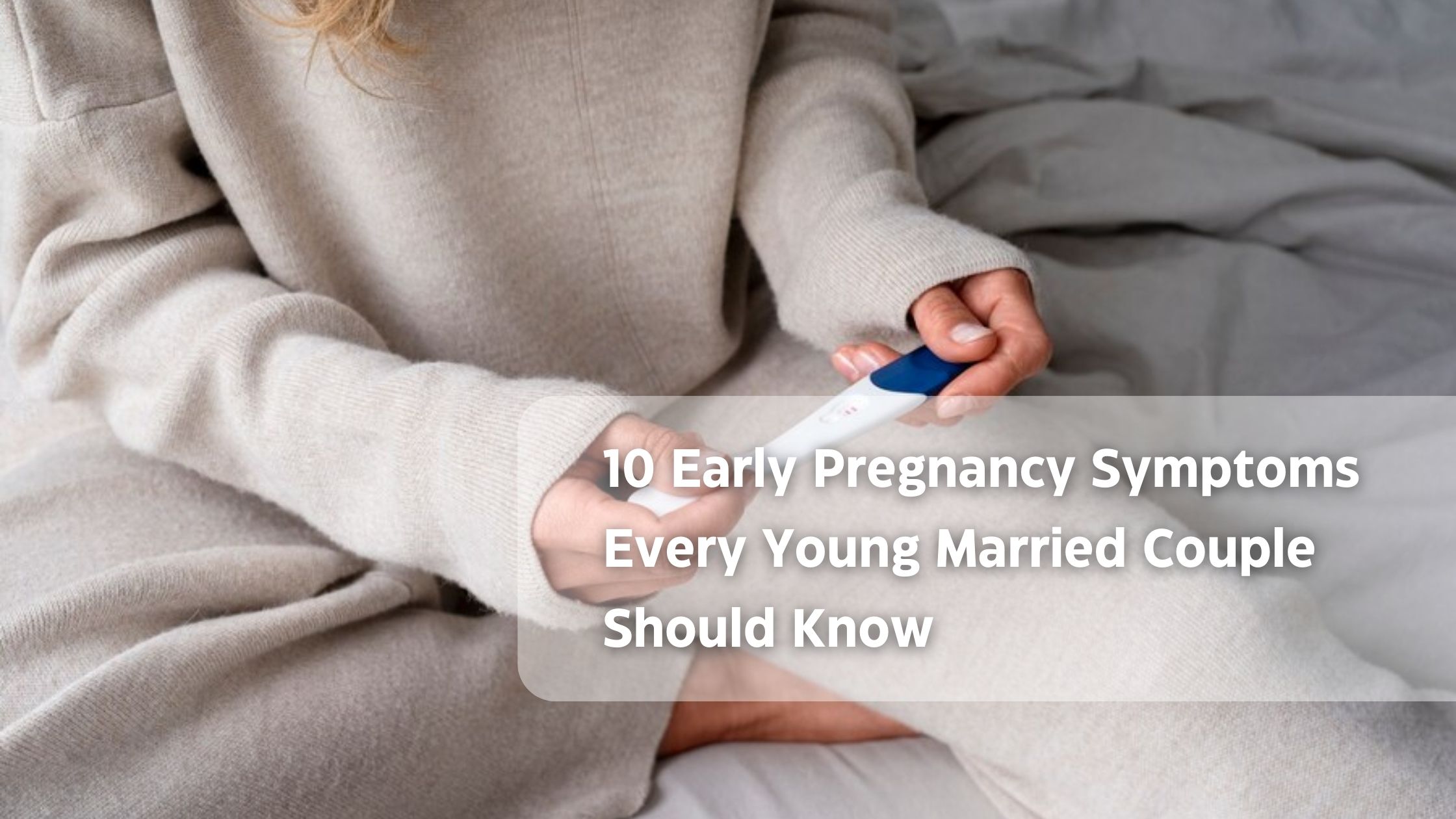10 Early Pregnancy Symptoms Every Young Married Couple Should Know
Recognizing Early Pregnancy: A Guide for the Newlyweds

Understanding the Signs of Pregnancy
common signs:
- Increased urination
- Fatigue
- Food cravings or aversions (image 1)
- Mood swings
- Slight bleeding or cramping (image 2)
- Heightened sense of smell


How to Confirm a Pregnancy in the Early Stage
Home pregnancy tests are a quick and convenient way to check for pregnancy by detecting the hormone hCG in urine, which rises rapidly in early pregnancy. For the most accurate results, it’s best to use the test first thing in the morning when hCG levels are highest. If the result is positive, consult a doctor for confirmation through a blood test, which can detect pregnancy even earlier than urine tests. Doctors may also perform a pelvic exam or an ultrasound around 6-8 weeks to confirm the pregnancy, detect the baby’s heartbeat, and estimate the due date. Early detection is crucial to ensure proper prenatal care and a healthy start for both mother and baby.
Coping With the Symptoms of Early Pregnancy
Managing Morning Sickness and Fatigue
Morning sickness is a common experience for many pregnant women, often causing nausea and vomiting, especially during the first trimester. To manage this discomfort, it’s helpful to eat small, frequent meals throughout the day instead of large ones, as an empty stomach can sometimes worsen nausea. Additionally, avoiding strong smells, such as cooking odors or perfumes, can prevent triggers that exacerbate symptoms. Staying hydrated is crucial, as dehydration can make nausea worse, so sipping water or electrolyte drinks regularly can help. Some women find relief from ginger tea or candies (image 1), known for their soothing properties, which can reduce nausea and provide comfort during this challenging time.
Fatigue is a common symptom during pregnancy as your body works hard to support the growth and development of your baby. To cope with this overwhelming tiredness, it’s essential to prioritize rest. Going to bed early allows your body to recover and recharge for the day ahead. Asking for help with household chores can alleviate the pressure and allow you to conserve energy. Maintaining a balanced diet, rich in essential nutrients, can also help boost energy levels, supporting both your health and your baby’s development. Additionally, considering prenatal vitamins (image 2) can fill any nutritional gaps, ensuring you get the right vitamins and minerals that contribute to overall well-being and combat fatigue.


The Importance of Nutrition and Exercise
Good nutrition plays a vital role during pregnancy, as it supports both your health and the healthy development of your baby. A well-balanced diet rich in essential nutrients ensures that your body has the energy and strength to navigate the changes that come with pregnancy. Focus on consuming a variety of fruits and vegetables, which provide important vitamins, minerals, and antioxidants that promote fetal growth and protect your immune system. Whole grains offer fiber and sustained energy, while lean proteins are essential for building and repairing tissues, as well as supporting your baby's growing muscles. Healthy fats, found in foods like avocados, nuts, and olive oil, are also crucial for brain development and overall well-being. By incorporating these nutrient-rich foods into your diet, you’re giving both yourself and your baby the best foundation for a healthy pregnancy.
Exercise is an important aspect of a healthy pregnancy, as it can help boost energy levels, improve sleep, and alleviate discomfort. Engaging in safe, low-impact activities can support both your physical and mental well-being during this time. Walking (image 2) is a great way to stay active, providing gentle cardiovascular benefits while also reducing stress. Swimming is another excellent option, as it takes the pressure off your joints and helps relieve swelling, all while giving you a full-body workout. Prenatal yoga focuses on stretching, strengthening, and breathing exercises that can help ease back pain and promote relaxation. Low-impact aerobics (image 1) can also be beneficial, offering cardiovascular exercise without putting too much strain on your body. These activities can help keep you fit and energized while ensuring the safety of both you and your baby.


The Role of Support in Early Pregnancy and Beyond
Support is essential during pregnancy and beyond, helping to reduce stress and improve outcomes for both the mother and baby. Emotional support provides a safe space for the mother to express feelings, while practical help with chores, errands, or childcare offers relief. Sharing information with other parents can provide valuable insights, and having a supportive partner can encourage healthy habits and accompany the mother to doctor visits. It's important to remember that partners also need support as they navigate their own fears and concerns about parenthood. Open communication, attending classes, or seeking counseling together can strengthen the bond. A strong support system makes the journey to parenthood smoother, more enjoyable, and less isolating.
Supporting Each Other
Early pregnancy can be a rollercoaster of emotions and physical changes. Open communication and mutual support are essential for navigating this journey together. Remember, every pregnancy is unique, so not all women will experience the same symptoms. By understanding these early signs, young married couples can take the first steps toward embracing parenthood with confidence and excitement.
Conclusion
Embracing the journey of early pregnancy is both exciting and challenging. By recognizing the signs, confirming the pregnancy early, managing symptoms, prioritizing nutrition and exercise, and leaning on a strong support system, couples can navigate this new chapter with confidence and care. Remember, every step you take now sets the foundation for a healthy and joyful experience for both the parents and the baby.

